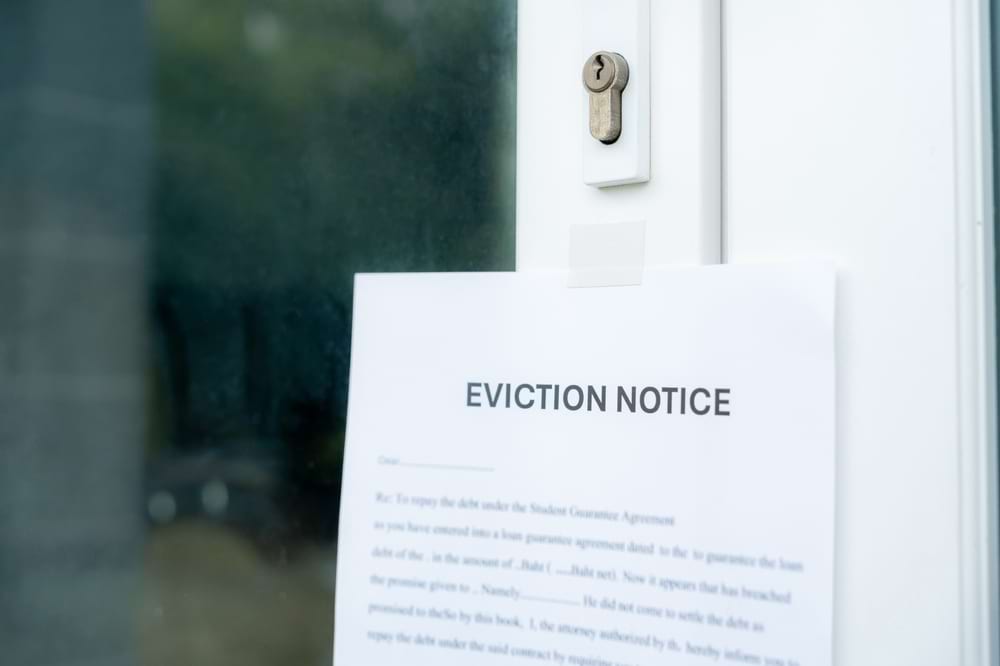According to a late 2023 report, 25% of landlords plan to sell a property within the next year.
Having sitting tenants in the house can complicate the selling process. It can even devalue a property.
Let’s explore sitting tenancies and they affect the price a landlord sells a property for.
What is a sitting tenant?
A sitting tenant is someone who lives in a property that is being sold.
This is usually someone who agreed to rent the home before the homeowner (/landlord) had decided to sell it.
Sitting tenants’ legal position
The most common type of tenancy agreement in the UK is an Assured Shorthold Tenancy (AST) agreement.
When this is in place, the tenants can live in the home until the tenancy agreement finishes.
Other types of tenancy agreements exist in the UK, such as assured tenancies, but they are. If they are in place, they make selling a property more difficult.
The process of selling with a sitting tenant can be challenging. So, it’s essential to understand the rules and regulations around it.
Otherwise, you put yourself at risk of litigation down the line from your home’s inhabitants.
Challenges when selling with a sitting tenant
1. Limits potential buyers
By selling with sitting tenants, you’re cutting out many buyers.
That limits your options to other buy-to-let landlords looking for another property. Or buyers who can afford to wait until the tenant’s contracts are up.
2. Delays to viewings
If you want to sell a home on the open market, you must give your tenants at least 24 hours’ notice before every viewing.
You must communicate clearly with your tenants. And – to a degree – organise around their timelines.
This adds to the difficulties of organising viewings. In some cases, this might put off buyers, especially those wanting to move quickly with a sale.
Positives of selling with sitting tenants
There’s always a silver lining. Some buy-to-let investors want to start earning from a property immediately. So having tenants in situ is ideal for them.
Tenants who pay rent on time and maintain property well are even more appealing to landlords.
Some landlords may buy your property to avoid the hassle of finding new tenants.
How much does a sitting tenant devalue a property?
A house with sitting tenants drops in value by an average of 20% to 25%.
This can drop even further if there’s a long-term agreement, like an assured tenancy, in place.
One way around this is to offer the tenants a right of first refusal (ROFR) on the home.
This contractual right gives tenants to the first opportunity to buy the home. That is, before it’s offered to others.
In other words, it gives the tenant the chance to buy the property from you away from the open market.
A drop in value isn’t always a guarantee, either. It depends on how buoyant the market is and how many other properties are for sale at any given time.
However, economic policies, especially around interest rates, can dramatically change the property market. And these can happen at any given time.
If you need to sell quickly, you can always auction the property or go through a cash buyer.
Can I forcibly evict my sitting tenant?
You can’t evict tenants just because you want to sell.
The tenants must have broken the lease terms to trigger a Section 21 eviction notice. This gives them two months to vacate the property.
An assured shorthold tenancy (AST) usually lasts 12 months. It often has an option to renew the tenancy or find somewhere else to live.
You can either wait until they’ve left to sell your property or serve a Section 21 notice near the end of the agreement.
Some landlords offer financial incentives for tenants end tenancies early and move elsewhere.
This can work if you want to sell quickly to free up cash or address financial difficulties.
You should always speak to a property professional or your letting agent if you want to evict a tenant. They can help you avoid pitfalls and ensure everything is above board.
What are my rights as a landlord with tenants in situ?
As a landlord and the homeowner, you have rights – but so do your sitting tenants.
You also have the right to keep your own set of keys and access the property. Provided you give your tenants 24 hours’ notice.
Some tenants break tenancy agreements. For example, they might miss rent payments or have a pet when it’s against the lease. In these cases, you can issue a Section 21 notice to evict them.
You also have the right to sell the property whenever you like. But the tenants only have to leave if they choose to do so via a break clause in the AST agreement.
How We Buy Any Home can help you sell a tenanted property
Looking tosell a house with tenants? If so, We Buy Any Home can help.
We are experienced, chain-free cash house buyers. We cans buy your property up front and quickly, without hassle or stress.
Contact us today for a free consultation.




















